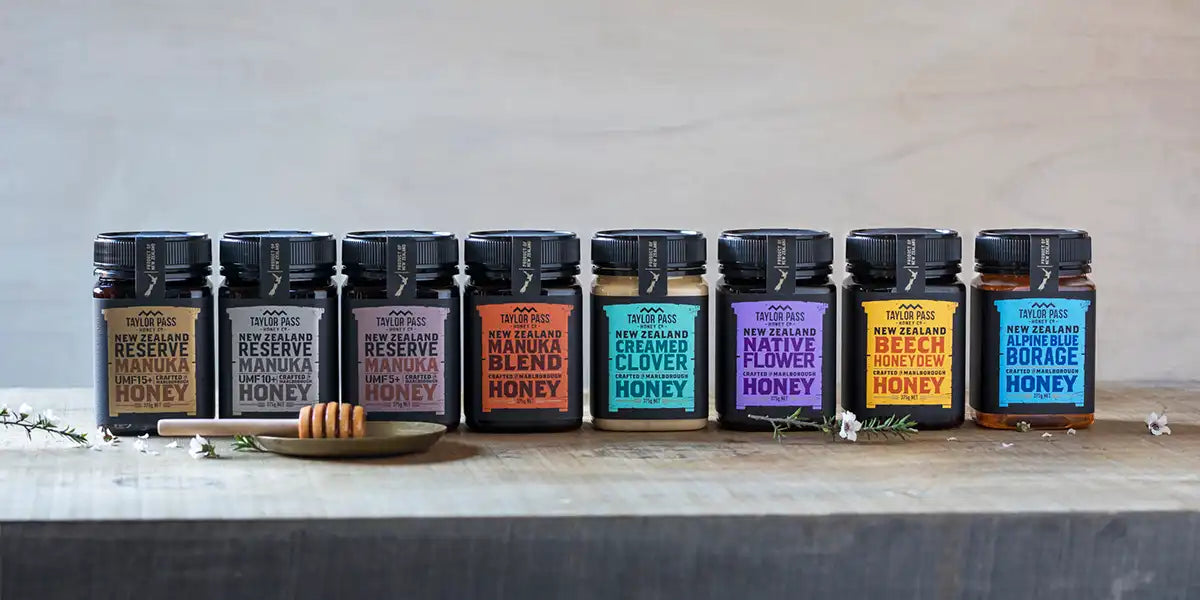Honey has been revered for centuries for its natural sweetness and myriad of health benefits. However, for individuals managing diabetes, concerns about its impact on blood sugar levels often arise. So, is it safe for diabetics to consume honey? Let’s explore what diabetes is, how honey can be a good alternative for diabetics, and why Taylor Pass Honey might still be an option.
Understanding Diabetes
Diabetes is a chronic condition characterized by elevated levels of glucose (sugar) in the blood. There are two primary types of diabetes: Type 1, which typically develops in childhood or adolescence and results from the body's inability to produce insulin, and Type 2, which usually develops in adulthood and involves insulin resistance, where the body's cells do not respond effectively to insulin.
Managing blood sugar levels is crucial for individuals with diabetes to prevent complications such as heart disease, kidney damage and nerve damage. This often involves monitoring carbohydrate intake, choosing foods with a low glycemic index (GI), and maintaining a healthy lifestyle.

Honey Sugar Composition
Honey is primarily composed of two types of sugar: glucose and fructose. These natural sugars give honey its distinctive taste and the ratio of glucose to fructose varies across different honey varieties. Moreover, honey contains trace amounts of vitamins, minerals, and antioxidants, which can provide additional health benefits. Some honeys, such as Mānuka honey, contain anti-inflammatory and antimicrobial properties
Despite its natural sweetness, honey can have a lower glycemic index compared to other sweeteners, depending on factors like floral source and processing methods. The glycemic index (GI) measures how quickly a carbohydrate-containing food raises blood sugar levels. Honey typically has a lower GI than refined sugar, making it a favorable option for individuals with diabetes when consumed in moderation.

Is Honey Safe for Diabetics?
According to the American Diabetes Association (ADA), individuals with diabetes can include honey in their meal plan as part of their carbohydrate intake, but it's important to note that individual responses to honey can vary. Factors such as the type of diabetes, overall diet, and portion sizes play crucial roles in determining how honey affects blood sugar levels in each person.
Some studies suggest that compared to refined sugar, honey might have certain advantages for individuals with diabetes. A study published in the National Library of Medicine found that honey could potentially offer benefits such as lower glycemic response and improved lipid profiles in individuals with type 2 diabetes when consumed in moderation. Additionally, honey contains antioxidants and other bioactive compounds that may have positive effects on overall health.
Mānuka Honey
Mānuka honey has gained recognition for its potent antibacterial properties and an array of potential health benefits. While research specifically examining the effects of Mānuka honey on diabetes is limited, some studies suggest that its low glycemic index and unique compounds like methylglyoxal (MGO) may offer potential advantages for individuals with diabetes. However, moderation and careful monitoring are key. Consult with a registered dietitian or healthcare provider for a personalized plan on how to include Mānuka honey as part of a balanced diet.
Choosing the Right Honey
Not all honey is created equal, and certain types may be more suitable for individuals with diabetes. Raw honey retains more of its natural nutrients and antioxidants compared to processed varieties. Additionally, some honeys have lower GI values than others, which may have less of an impact on blood sugar levels.
When choosing honey for a diabetic-friendly diet, quality matters. At Taylor Pass Honey, our honey undergoes minimal processing and contains just one ingredient – 100% pure New Zealand honey. Our honey is sourced from remote beehives surrounded by the native flora of New Zealand, ensuring high-quality honey products free from additives and contaminants. We offer a range of options, from floral honey to Mānuka honey, that may provide diabetics with a delicious sweetener alternative they can enjoy with confidence.


